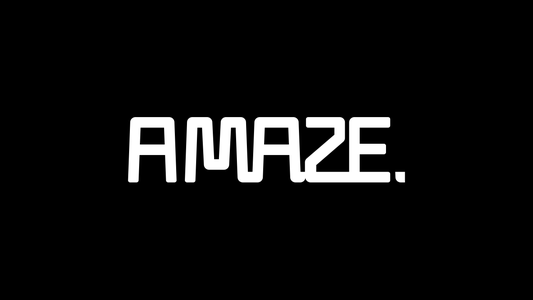European eSports lawyers Isabel Davies, Pete Lewin and Jas Purewal from Purewal & Partners break down the UK Gambling Commission’s recent discussion paper on eSports gambling and give their first impressions on what this could mean for the eSports industry.
-------------------------------------------------------------------------------------------------------------
The UK Gambling Commission has become the first gambling regulator in the world to release an in-depth report and discussion paper on the current status of eSports gambling. ‘Skins’ gambling, stake-to-play betting and tournaments involving RNG-heavy games are amongst the topics discussed in its 11th August 2016 paper, which outlines if and how these are likely to be regulated under UK gambling laws. This paper signifies an important development for anyone operating in the UK/EU eSports and video games industries, whether or not they are directly involved in gambling services.
OUR QUICK SUMMARY:
Skins sites operating in or providing services to the UK are likely to require a UK gambling licence.
Betting on eSports matches with real money, like traditional sports betting, should be regulated.
Platforms offering “bet on yourself” functionality may be considered ‘betting intermediaries’ in certain (currently undefined) circumstances, which would require UK gambling licences.
Prize tournaments that feature RNG-heavy eSports titles may constitute regulated ‘gambling events' meaning organisers may require a UK gambling license. This could potentially have significant wider video game development implications in the future.
The Gambling Commission intends to prioritise protection of children / young people.
The Gambling Commission has invited comments with a response deadline of 30th September 2016
While this paper only directly applies to gambling services being offered to UK residents, what happens in the UK is likely to be influential in other territories (as has historically been the case in similar developments in mobile/social gaming and free to play games regulation).
Fundamentally, the report if implemented is likely to steer the very nascent UK/EU eSports gambling market towards regulation through the UK’s licence system and may well provoke consolidation, but seems relatively unlikely to kill the market as such.
While much of the discussion paper reflects existing trends and likely interpretations of gambling legislation which we have predicted for some time, which is to be welcomed, in our view it is important not to draw too simple or quick an analogy between sports and eSports, including in relation to gambling: undoubtedly they have much in common, but they have as many differences too. Above all, there is as of yet no meaningful empirical data on the extent to which problem gambling or integrity matters are actually an issue in eSports. Nonetheless, the Gambling Commission is signalling its willingness to be involved in these matters and if appropriate to extend UK gambling regulation over them.
1) Virtual Skins
“Where “skins” are traded or are tradeable and can therefore act as a de facto virtual currency and facilities for gambling with those items are being offered, we consider that a licence is required” (paragraph 3.6).
The Gambling Commission spent some time discussing ‘skins’ (skins being in-game items that typically provides aesthetic upgrades; the term is most closely associated with Counter Strike: Global Offensive, one of the top eSports titles, but is probably extendable to any virtual item transacted within an eSports title). This is on the basis that such skins may have monetary value due to their ability to be bought and sold for real money via online marketplaces The Gambling Commission indicated that skins gambling providers would require UK gambling licenses.
Until fairly recently a wide variety of skins gambling websites were available to UK residents and were operating in a legal grey area, partly on the basis that there was no guidance on whether or not skins or similar items equated to a money equivalent (although there is an equally big question regarding the extent to which they are legally permitted by the game and distributor T&Cs). The Gambling Commission’s stance in its paper seems likely to resolve a fair amount of this uncertainty by making such sites regulated under UK gambling law.
One important factor which the Gambling Commission does not consider in any detail is that most virtual items are only convertible into real money via third party, often illegal, marketplaces that typically breach the terms and conditions of the underlying game (and may infringe their IP). This is certainly the case for Counter Strike: Global Offensive skins. Whether or not these should nonetheless constitute a cash equivalent in the UK for gambling purposes is ultimately up to the Gambling Commission and/or the courts, but in our view there is a real issue here and taking too direct/simplistic an analysis regarding how skins/virtual items are traded before applying gambling law could have significant negative consequences for the wider eSports and games industries.
How might this affect the eSports industry?
Skin betting/gambling sites: For those CS:GO skin sites that are still in operation following a recent crackdown from Valve, skin sites offering facilities to UK citizens seem likely to require UK licences in the future. Given the cost, complexity and time required for such licences, it may be that UK-based sites shut down and non-UK sites geoblock the UK to try to navigate UK regulation. However, as noted above there are larger industry-wide questions which could have a much larger impact.
Publishers/Third Parties: The Gambling Commission has stated that if it detects unlicensed gambling is occurring it will reach out to the operator itself, which could potentially involve the publisher as a facilitator of the gambling services.
eSports Teams: If the number of skins sites decreases (although that is too early to tell), this may indirectly affect teams (especially UK teams) sponsored by or partnered with skins sites.
2) eSports Match/Event Betting
“eSports present some particular challenges and risks for gambling regulation.” (paragraph 4.3)
“. . .the regulation of betting on eSports is no different from any other event upon which bets can be placed.” (paragraph 4.5).
While the Gambling Commission noted that eSports events present new challenges from a regulatory point of view, it concluded that betting on eSports matches with real money is no different from betting money on any other event and would therefore constitute regulated gambling. As a result, both traditional and eSports-specific operators have to appropriately manage risks such as cheating, match fixing and underage or excessive gambling, in addition to holding the appropriate gambling licenses.
Even prior to this paper it was relatively clear that real money betting on eSports events likely constituted regulated gambling, so this development is unsurprising (but still a useful confirmation). However, in our view it remains to be seen how serious an issue this is likely in practice to become, given the lack of any reliable empirical data or studies regarding the extent to which these issues occur in eSports. There is of course some value in drawing analogies to ‘traditional’ sports gambling to signpost where eSports gambling should develop, but as in any sports/eSports legal/regulatory discussions the similarities between the two only go so far.
How might this affect the eSports industry?
Operators: Unlicensed real money eSports gambling operators will likely need UK licenses.
Integrity solutions: There will likely be greater focus on integrity solutions going forward, which signals an opportunity for integrity solution providers from the mainstream sports industry (if they can adapt sufficiently to eSports).
Professional players and teams: Indirectly, players/teams may find themselves under greater scrutiny from UK operators regarding integrity matters.
3) Bet On Yourself / Stake-To-Play


































